The Flip Side of the AI Revolution
In recent years, artificial intelligence (AI) has surged into nearly every corner of our lives. From personal assistants like Siri and Alexa to smart cars, facial recognition, and even deepfake videos — AI is everywhere. But while the world celebrates innovation, there’s a darker, less talked-about side. How AI is changing the world negatively isn’t just a theoretical discussion anymore — it’s something many of us are already living through. ⚠️🤖🧠
I remember sitting with a friend who worked in journalism. She told me how her entire department was downsized because AI could now generate news articles in seconds. The shock in her voice was unforgettable. That conversation planted a seed in my mind — are we heading toward a world run by machines at the cost of human livelihoods, creativity, and ethics? 📰😟📉
This article dives deep into how AI is changing the world negatively, not to fearmonger, but to honestly reflect on what’s happening around us — and what might come next. 🔍🧩📚
1. Job Displacement: The Silent Crisis
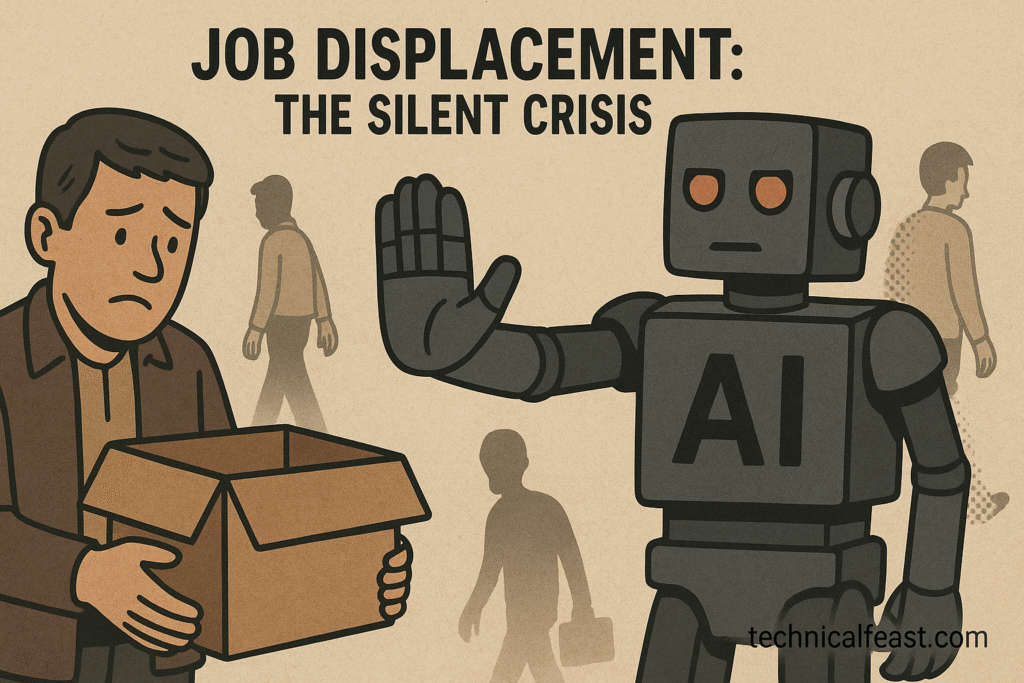
Imagine waking up one morning to discover a machine has replaced your role. That’s not sci-fi — it’s a daily reality for thousands of people worldwide. 🛏️⚙️📉
AI-driven automation is rapidly taking over repetitive and even creative tasks. Factories are replacing workers with robotic arms. Call centers are using AI-powered voice bots. And writers are being substituted with content generators. According to a 2023 report by the World Economic Forum, automation and AI could displace over 85 million jobs by 2025. 📊🤯🏭
One case that stands out is a factory in China that replaced 90% of its workers with AI robots. Productivity went up, but so did unemployment in the area. The economic boost came at the cost of families who now struggle to pay their bills. 🇨🇳🤖💔
This is a core example of how AI is changing the world negatively — by valuing speed and cost-efficiency over human stability. ⏩💰🧍♂️
2. Bias and Discrimination in Algorithms
Here’s something you might not know: AI can be racist, sexist, and biased — not because it wants to be, but because it learns from human data. ⚖️💻🚫
Let me explain. AI is trained using vast datasets collected from the real world. If those datasets reflect societal biases (and they almost always do), the AI model unknowingly replicates and even amplifies them. 📚📈📉
For instance, facial recognition systems have been found to misidentify people of color at significantly higher rates than white individuals. In the U.S., this led to at least two wrongful arrests — both of Black men — purely based on flawed AI results. 🧑🏾🚓❌
In hiring tools, AI has shown preference for male candidates because the training data came from decades of male-dominated resumes. These biases might not be intentional, but they’re baked into the systems we now trust to make critical decisions. 👨💼🤖🧾
And that’s another layer of how AI is changing the world negatively — by institutionalizing discrimination under the shiny label of “tech efficiency.” 🏷️⚙️🚷
3. Deepfakes and Misinformation: The Era of Trust Crisis
Remember the viral video of Barack Obama saying things he never said? Or the fake Tom Cruise TikToks that looked disturbingly real? Welcome to the world of deepfakes — AI-generated synthetic media that blurs the line between reality and fiction. 🎭📽️🔍
This technology, once impressive, is now dangerous. Political campaigns can be hijacked. Celebrities face character assassination. Scams are harder to detect. And worst of all, ordinary people can fall victim to impersonation. 🗳️⚠️👥
In India, a recent scandal involved a deepfake of a popular actress used in inappropriate videos, leading to mental trauma and legal battles. The public, however, couldn’t tell the difference. 🇮🇳🎞️😨
This is one of the scariest examples of how AI is changing the world negatively — by making it impossible to know what’s real anymore. 🧠❓📺
4. Privacy Erosion: You’re Being Watched (And Tracked)
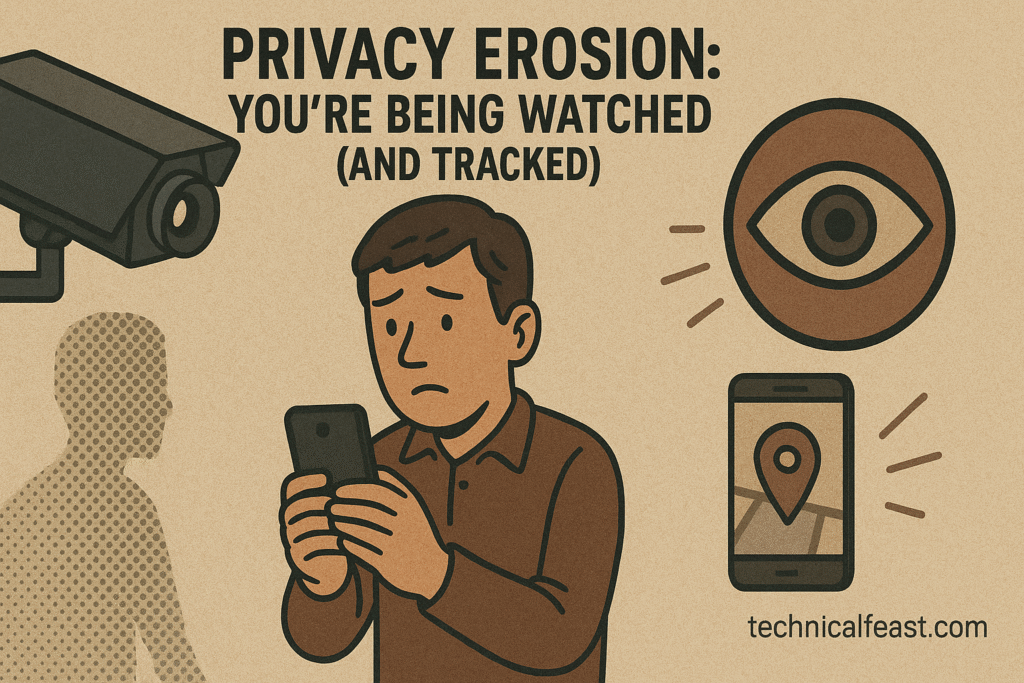
Have you ever talked about something near your phone, only to see an ad about it minutes later? 📱👀🎯
That’s not a coincidence — that’s AI at work. 🧠💬📡
AI-powered surveillance systems can analyze faces, track movements, read messages, and even predict behavior. While these tools are often marketed as “enhancing security,” they also silently erode personal privacy. 🕵️♂️🔒📉
In countries like China, AI is used in mass surveillance, where citizens are scored based on their social behavior — affecting everything from travel freedom to job eligibility. But it’s not just authoritarian regimes. Even in democratic nations, AI tools used by tech giants track user behavior for targeted advertising. 🛰️🌐👣
So when we ask how AI is changing the world negatively, one answer is this: it’s slowly killing our right to digital privacy — without us even realizing it. 🧾👓🚨
5. Psychological Toll and Dependency
There’s an emotional cost to living in a world where machines “understand” you better than people. More individuals are turning to AI companions for conversation, comfort, or even romance. ❤️🤖🗨️
While this sounds harmless, studies suggest it can worsen isolation, reduce real-world social interactions, and deepen mental health struggles. 🧍♀️🧠📉
A Reddit user once shared how their AI chatbot became the only thing they “talked to for months.” It started as curiosity, turned into comfort, and eventually into obsession. When the app shut down, they felt actual heartbreak. 🧑💻💔💬
This emotional dependency is another subtle example of how AI is changing the world negatively — replacing human connection with synthetic validation. 🤲💬🎭
Frequently Asked Questions (FAQs)
Q1: Is AI really causing job losses or just changing job roles? 🤔💼📉
Both. While AI creates some new roles (like prompt engineers or AI ethicists), it displaces far more traditional jobs in industries like manufacturing, retail, and even journalism. Millions are affected.
Q2: Why do AI systems show bias? 🧠📊🚫
AI learns from data. If that data includes human bias (racial, gender, etc.), the system often reproduces or even amplifies it. That’s why ethical training data is essential.
Q3: Can deepfake technology be used for good? 🎥👍🎓
Yes, in entertainment and education, deepfakes can have positive uses. But the majority of cases so far have leaned toward malicious or misleading uses, harming public trust.
Q4: Is AI surveillance always harmful? 📹⚖️🕵️
Not always. AI surveillance can help with public safety, missing persons, or crime detection. However, unchecked use leads to privacy violations and authoritarian control.
Q5: How can we reduce AI’s negative impacts? 🛡️📜🌍
Through regulation, ethical AI development, transparency in algorithms, public awareness, and limiting AI in sensitive domains (like military or criminal justice).
Q6: Can people become emotionally attached to AI? 🧑💻❤️🤖
Yes, especially in cases where users rely on AI chatbots for emotional support. It can create an unhealthy psychological dependence if not balanced with real human interaction.
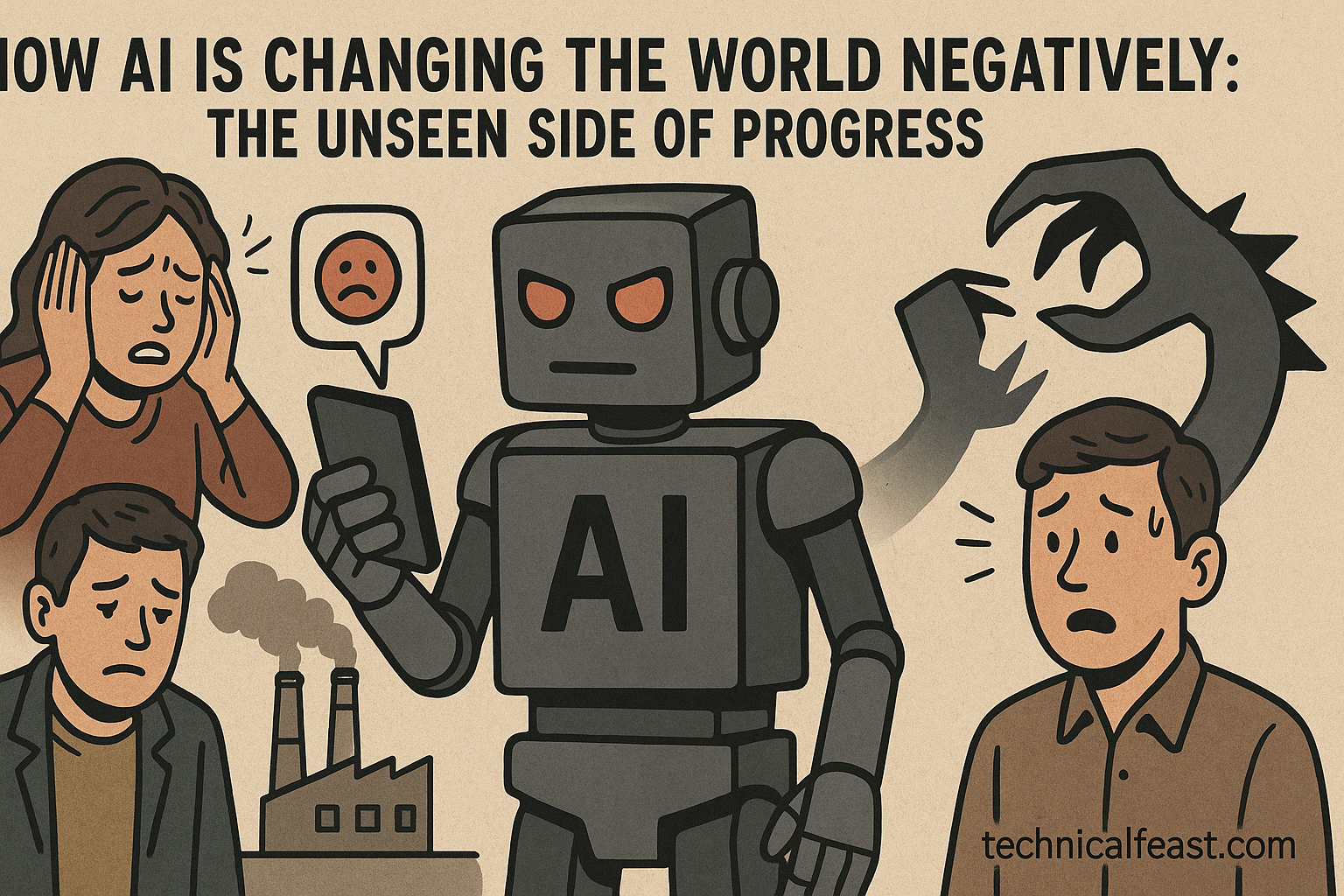
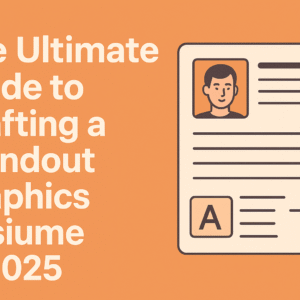
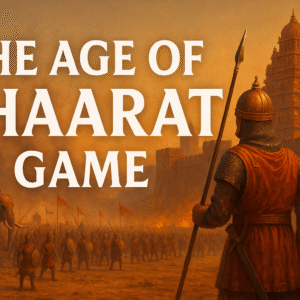
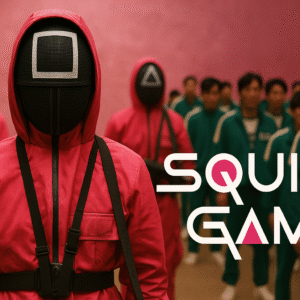
Leave a Reply